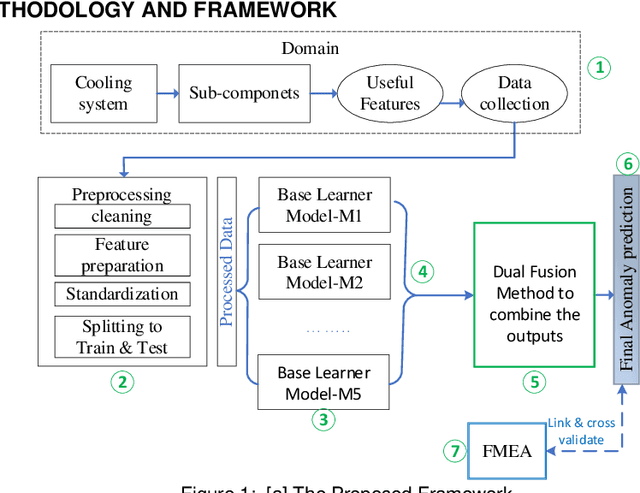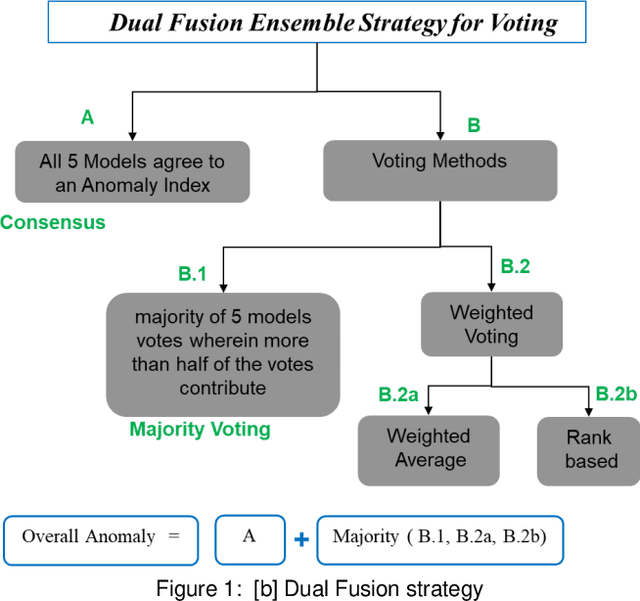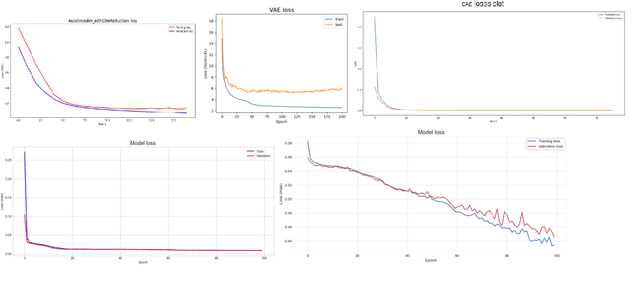S2DEVFMAP: Self-Supervised Learning Framework with Dual Ensemble Voting Fusion for Maximizing Anomaly Prediction in Timeseries
Paper and Code
Apr 24, 2024



Anomaly detection plays a crucial role in industrial settings, particularly in maintaining the reliability and optimal performance of cooling systems. Traditional anomaly detection methods often face challenges in handling diverse data characteristics and variations in noise levels, resulting in limited effectiveness. And yet traditional anomaly detection often relies on application of single models. This work proposes a novel, robust approach using five heterogeneous independent models combined with a dual ensemble fusion of voting techniques. Diverse models capture various system behaviors, while the fusion strategy maximizes detection effectiveness and minimizes false alarms. Each base autoencoder model learns a unique representation of the data, leveraging their complementary strengths to improve anomaly detection performance. To increase the effectiveness and reliability of final anomaly prediction, dual ensemble technique is applied. This approach outperforms in maximizing the coverage of identifying anomalies. Experimental results on a real-world dataset of industrial cooling system data demonstrate the effectiveness of the proposed approach. This approach can be extended to other industrial applications where anomaly detection is critical for ensuring system reliability and preventing potential malfunctions.
 Add to Chrome
Add to Chrome Add to Firefox
Add to Firefox Add to Edge
Add to Edge